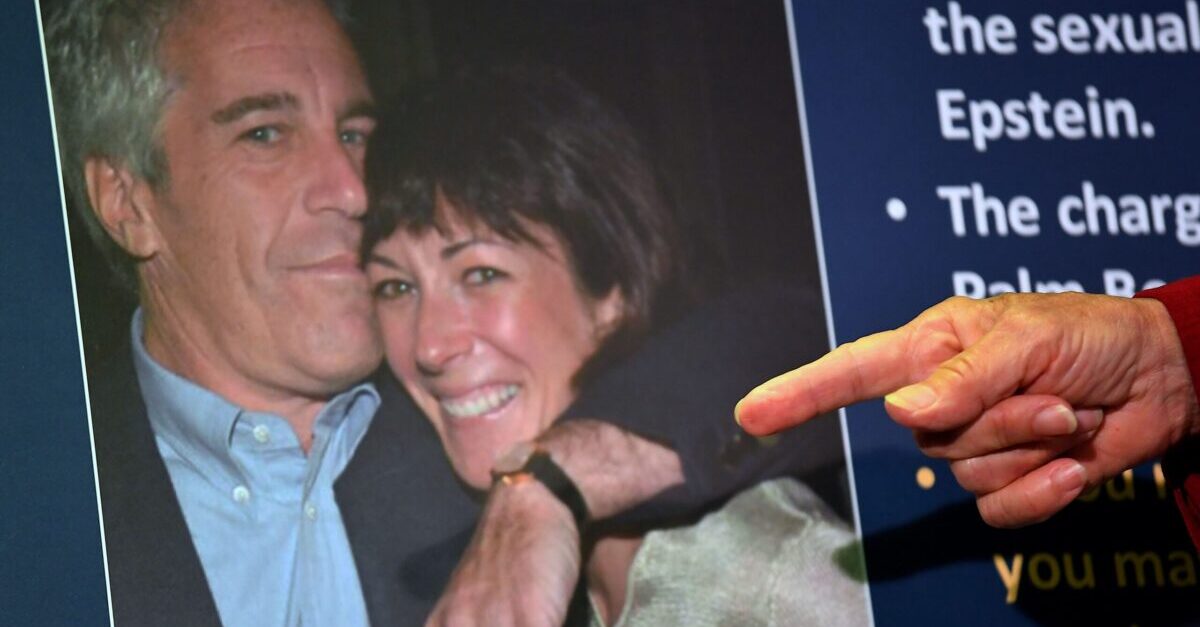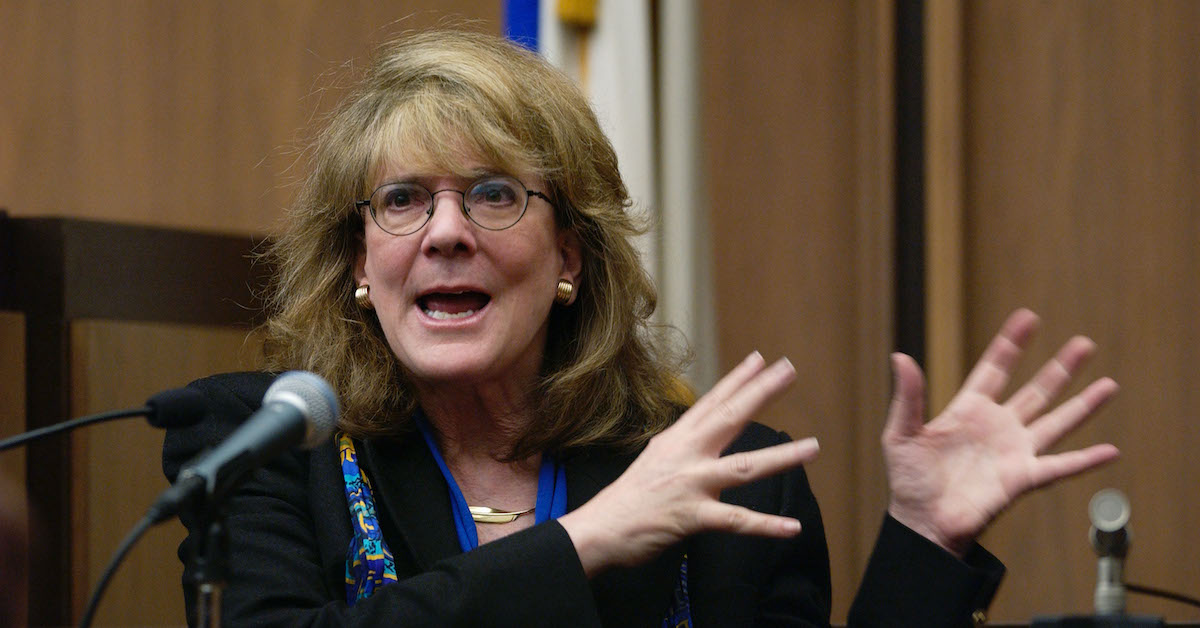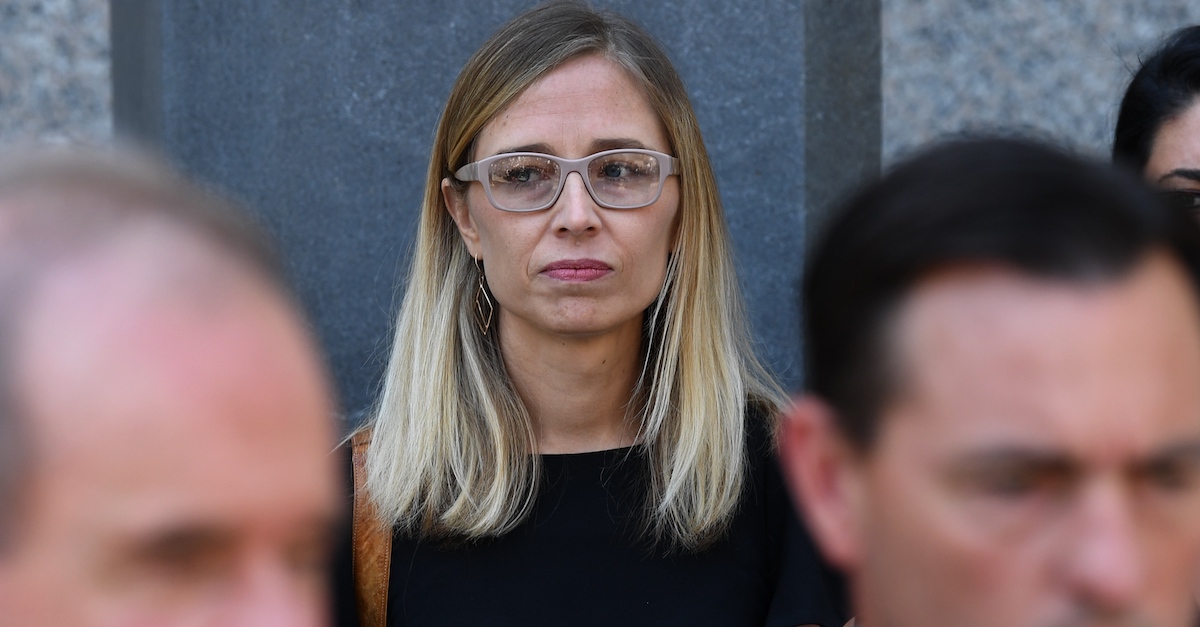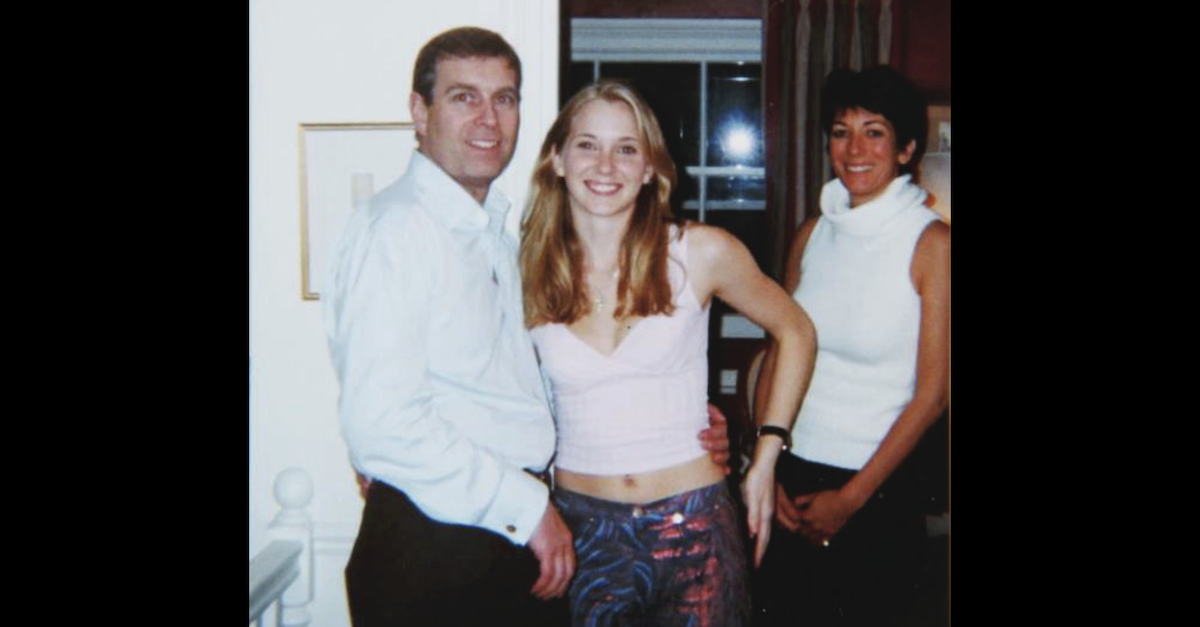
More than 25 years after the earliest allegations of her indictment, Ghislaine Maxwell is heading to federal court in Manhattan on Monday to answer charges that she groomed, abused and sexually trafficked young girls for Jeffrey Epstein’s predation.
A little less than a year after Epstein was found dead in his prison cell, Maxwell became the first accused co-conspirator of his to be charged by prosecutors. Opening statements are expected in her trial shortly after U.S. District Judge Alison Nathan empanels a jury in the morning. Trial falls a little more than a year after Maxwell’s arrest, bogged down by trial delays in the wake of the COVID-19 pandemic.
In keeping with Law&Crime’s exhaustive coverage of the case, here are the answers to some frequently asked questions about the trial more than a quarter century in the making.
Q: What are the charges against Ghislaine Maxwell?
In July 2020, federal prosecutors hit Maxwell with six charges, mostly focused on allegations that she enticed girls between the ages of 14 and 17 to travel to Epstein for his sexual abuse. These allegations are generally known as violations of the Mann Act.
“The Mann Act is was originally used in order to prosecute any interstate transportation of women for illicit purposes, including prostitution,” Mitchell Epner, a former federal prosecutor who spearheaded sex-trafficking cases in the District of New Jersey in 2003 and 2004, told Law&Crime in a phone interview.
“These days as a matter of discretion, the Mann Act is largely used only for trafficking offenses, meaning where people are being forced into prostitution against their will,” added Epner, who is now of counsel with Rottenberg Lipman Rich PC. “It can be underage women, but it can also be women of the age of consent, who are in some way being held in a form of sexual slavery where they don’t have a choice as to whether or not to engage in prostitution.”
This past March, the government leveled two more charges: sex trafficking and conspiring to commit sex trafficking.
If convicted on the six charges at issue in her trial, the 59-year-old Maxwell faces the possibility of 70 years imprisonment.
Maxwell will be tried separately on two additional charges of perjury, alleging that she lied during sworn depositions in litigation with one of her most prominent accusers: Virginia Giuffre, who sued Maxwell a little more half a decade ago in a lawsuit accusing her of turning her into Epstein’s “sex slave.” Maxwell pleaded not guilty to all of the charges.
When asked by Judge Nathan whether she sought or received a plea offer, Maxwell confirmed that she had not before replying: “I have not committed any crime.”
Q: Why do you say this is a trial a “quarter century in the making”?
Maxwell’s superseding indictment charges her with crimes dating between 1995 and 2004, well before Epstein struck a plea deal with federal prosecutors in Florida. It’s also well before the watershed Miami Herald investigation “Perversion of Justice” that brought Epstein and Maxwell back into the public eye.
For Epner, the former federal prosecutor, such a long road to trial poses challenges for the government.
“I think it’s one of the main proof problems that the federal government has, and it may be a problem they can overcome,” Epner said. “But 1995 was so long ago, that it is hard to imagine people having distinct memories of what happened on particular days with particular people, unless there were contemporaneous notes made, or something that made it so far out of the ordinary that it couldn’t be remembered.”
The science of memory will be bitterly contested at trial. Maxwell’s legal team received permission from a federal judge to call pyschologist Elizabeth Loftus, a “false memory” expert relied upon by Harvey Weinstein, Robert Durst, O.J. Simpson and hundreds of other criminal defendants.

Elizabeth Loftus, an expert in false memories, testifies in Paul Shanley child abuse trial. (Photo by Jodi Hilton/Getty Images)
Q: Who are Ghislaine Maxwell’s alleged victims?
Federal prosecutors identified four people as “Minor Victim” in the indictment, ranging from the ages of 14 to 17 at the time of the alleged abuse. Three will be testifying under pseudonyms, and only one, Annie Farmer, has stepped forward in court documents associated with the case.
(The U.S. Attorney’s office for the Southern District of New York have asked news organizations to observe long-standing journalism ethics norms against identifying any victim without her consent, and Law&Crime will honor that tradition for any alleged victim who does not wish to be publicly identified.)
Profiled with her sibling in the New York Times feature “The Sisters Who First Tried to Take Down Jeffrey Epstein,” Annie Farmer claims that Maxwell subjected her to a topless massage when she was a 16-year-old guest inside Epstein’s New Mexico ranch.

Lawyers David Boies (L) and Brad Edwards (R) speak to the press along with alleged victim Annie Farmer after a bail hearing in US financier Jeffrey Epstein’s sex trafficking case on July 15, 2019 in New York City. (Photo by TIMOTHY A. CLARY / AFP)
Maxwell’s lawyers are likely to argue that two of her accusers—Farmer and Minor Victim 3—reached the age of consent in the states they were allegedly abused. The age of consent in New Mexico is 16 years old, but prosecutors plan to argue that Farmer was taken to other jurisdiction where the age of consent is 17.
“There is no federal age of consent,” Epner, the former federal prosecutor, noted. “The federal law simply borrows the state law and whatever state a person is at the time.”
According to the indictment, Minor Victim 3 was 17 years old at the time of her alleged abuse, which would have been the age of consent under New York law.
Q: Will we learn more about Epstein’s alleged co-conspirators and enablers at this trial?
Anything can happen over the course of a criminal trial, and of course, the Epstein saga has captured global attention largely because of his ties to the international elite, including U.S. presidents Bill Clinton and Donald Trump, the U.K.’s Prince Andrew and billionaires such as Les Wexner.
Judge Nathan has questioned potential jurors about what they know about Trump’s club Mar-a-Lago, the Palm Beach resort that the former president dubbed the “Southern White House” during his tenure. Giuffre has stated publicly that Maxwell recruited her from the club, where Giuffre was working as a spa attendant.
That said, it’s far from a sure thing that skeletons with tumble out of the proverbial closet for any of these figures come trial time.
In August, prosecutors submitted a pretrial motion in the Maxwell’s case asserting that they only plan to introduce “co-conspirator statements at trial from only two individuals.” One of them is widely presumed to be Epstein. The government reserved the right to add to that list, and so that number might increase.
Regardless of what transpires during Maxwell’s trial, Prince Andrew will still face scrutiny inside the same courthouse: the Southern District of New York, where Giuffre has a pending federal lawsuit against him. The U.S. Attorney’s office previously called the British royal uncooperative with their Epstein investigation, a fact that Giuffre’s lawyers duly noted in their lawsuit. The prince vehemently denies the allegations in the civil suit, and nobody other than Maxwell and Epstein have been charged criminally in connection with the alleged conspiracy.

Prince Andrew stands with his arm around Virginia Giuffre’s waist, with Ghislaine Maxwell standing in the background. Giuffre included this photograph in her lawsuit against the British royal.
Q: What should we expect next?
Maxwell’s first day of trial begins with the culmination of jury selection at 9:30 a.m. Eastern Time. Earlier this month, Judge Nathan whittled down a pool of 600 potential jurors to some 58 remaining candidates. Maxwell’s counsel asked to exercise peremptory strikes after Thanksgiving, hoping to avoid the jury being tainted by holiday discussions with their families.
Opening statements are expected to begin shortly after the jury is empaneled, and though the length of the trial is uncertain, jurors will be asked to be prepared to stay after the holidays, as needed.
[image via JOHANNES EISELE/AFP via Getty Images]
Have a tip we should know? [email protected]